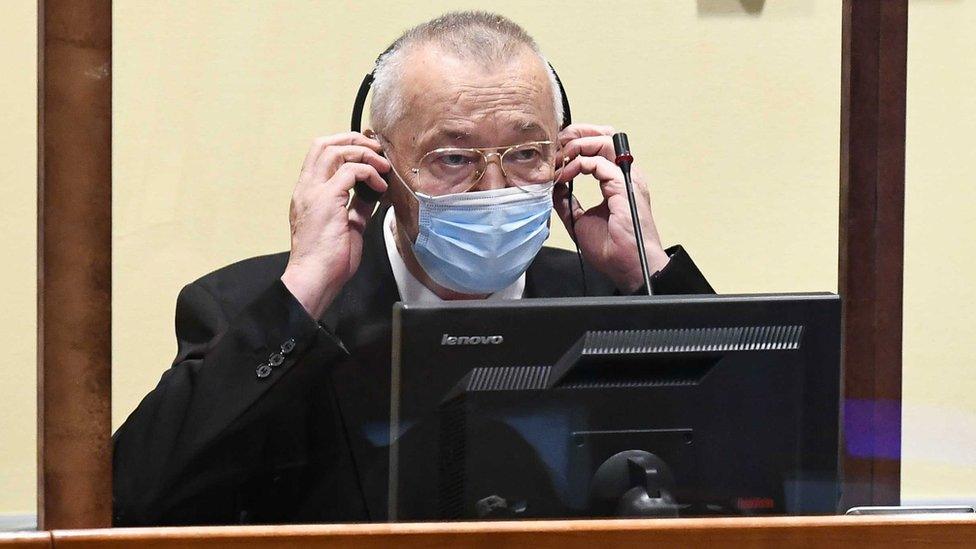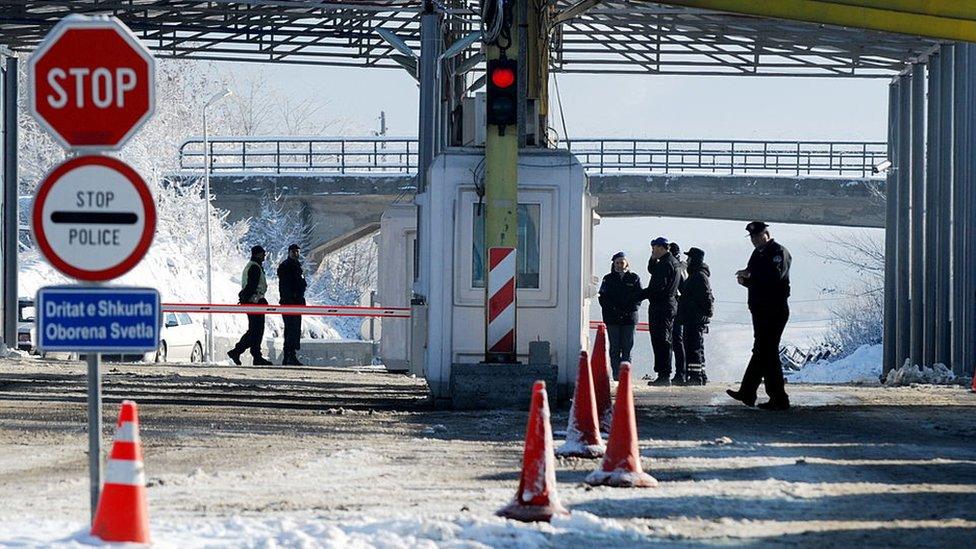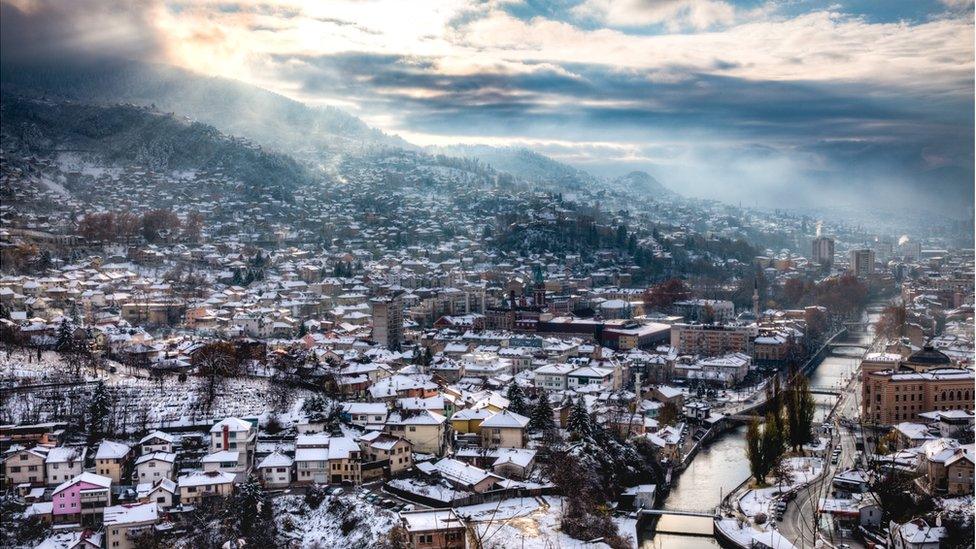Serbian ex-spy chiefs jailed for Balkans war crimes
- Published

Franko Simatovic denied the charges and has already served eight years in jail
A former chief of Serbia's state security service and his deputy have been jailed for training Serbian forces that carried out murder and ethnic cleansing in the 1990s Balkans war.
Jovica Stanisic and Franko Simatovic were both given 12 years.
Prosecutors at The Hague argued that the case proved the government of Slobodan Milosevic was directly linked to atrocities in Bosnia and Croatia
The court ruled they had aided and abetted crimes against humanity.
It was convinced that "a joint criminal enterprise" had existed from August 1991 to remove most non-Serbs from many areas and that plan was shared by senior political, military and police leaders in Belgrade.
However, it did not find enough evidence to confirm that the two men on trial were behind atrocities across Bosnia and Croatia.
One 1992 case was singled out in Bosnia-Herzegovina, where the men had trained a special unit of Serbian intelligence and local Serbs, which committed crimes in the town of Bosanski Samac. The court said the men's role did have a substantial effect on murders, forcible displacement and persecution there, and most of the non-Serb population was forced to leave.
In one incident alone in May 1992, 16 Bosnian Muslim and Bosnian Croat men were killed.
While the two men were criminally responsible for aiding and abetting crimes, external in that town, they were not guilty of planning, aiding or abetting any other crime, the judgement said.
Stanisic, 70, and Simatovic, 71, had denied the charges and were acquitted in an initial trial, but that ruling was quashed and a retrial ordered.
Stanisic has so far served about five years in jail and his deputy eight years. His lawyer told reporters he would appeal.
From 1991 on, Yugoslavia began to break up with conflict in many of its old republics. The war in Bosnia was the bloodiest as, ethnically and religiously, it was the most divided.
In 2001, Yugoslavia's ex-president Slobodan Milosevic went on trial at the UN war crimes tribunal in The Hague for genocide and crimes and humanity, but died in his prison cell five years later.
Earlier this month, the notorious commander of the Bosnian Serb army, Ratko Mladic, lost his appeal against conviction for genocide, war crimes and crimes against humanity.
He was jailed for life for the killing of about 8,000 Bosnian Muslim (Bosniak) men and boys in Srebrenica in 1995.

You may also be interested in:
Fergal Keane heard the story of Ramza Muhic, one of the women raped at the hotel (Video from 2016)
Related topics
- Published28 May 2021

- Published12 December 2020
